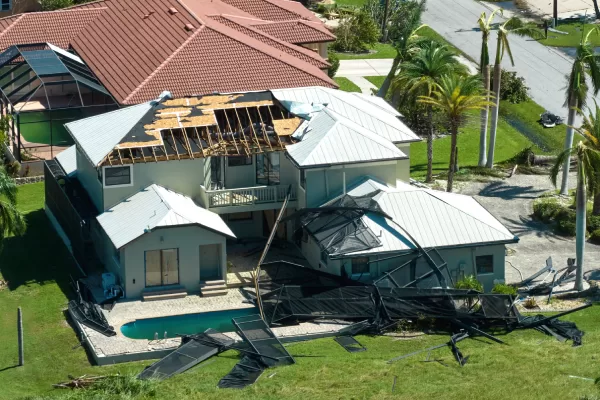
Don’t Underestimate Financial Repercussions of Rebuilding, Repairing After an Earthquake
January 19, 2024 by
jngijamaica
In recognition of Earthquake Awareness Week, being observed from January 14 to 20, Joseph Holness, Assistant General Manager, JN General Insurance, points out that some homeowners underestimate the financial fallout that can result from rebuilding or repairing a home after an earthquake.
“Earthquakes usually cause serious structural damage and even complete collapse that can result in millions of dollars in costs. Also, there is the indirect cost of disrupted lives and livelihood,” he stressed.

Mr Holness said the importance of insurance often becomes apparent when homeowners deal with the costs associated with a major catastrophe, such as an earthquake.
“In the aftermath of an earthquake, the financial burden on homeowners can be overwhelming. Restoring a home can be expensive. Without insurance coverage, homeowners may find themselves facing an enormous expense that could jeopardise their financial stability, which potentially may take them years to recover.”
Beyond absorbing the cost of property damage, Mr Holness highlighted that insurance can also cover living expenses for alternative accommodation while a damaged home is being repaired.
“After a major earthquake, some homes may become temporarily uninhabitable. Insurance alleviates the financial burden for homeowners by covering the expenses associated with staying at another property,” he explained.
Mr Holness underscored that mitigating the risk of earthquake damage requires a combination of proactive construction measures and effective preparedness strategies.
“Living in an earthquake-prone region means we can expect an earthquake at any time. While we cannot control when or where earthquakes occur, we can certainly take steps to mitigate their impact on our lives,” he emphasised.
He provides the following tips that homeowners can take to safeguard life and property:
- Comply with the Building Code
Ensure that any new construction or renovations comply with building code regulations that outline the minimum requirements for the design and construction of buildings. By strictly adhering to the building codes, persons can mitigate against earthquake damage, as these building codes focus on structural integrity, which is necessary to withstand the forces exerted during an earthquake.
Also, during construction, property owners should work with qualified professionals to ensure that the foundation of their structure is well-designed in accordance with the guidelines.
2. Consider Landscape Factors
Hanging plants can pose a risk during earthquakes due to their tendency to swing wildly. To minimise this hazard, opt for lightweight plastic containers or baskets thus reducing the potential for serious injury if they strike someone in the head.
Also, secure outdoor furniture and objects that could become projectiles and cause damage to glass windows.
3. Secure Heavy Furniture and ObjectsIn the event of an earthquake, the interior of your home can pose risks too. It is crucial to secure heavy furniture, equipment and appliances, such as water heaters and gas cylinders, as an earthquake can cause them to tip over. Properly mount flat screen televisions to the wall with heavy-duty brackets. Also, anchor bookshelves, cabinets, and heavy furniture to prevent them from tipping during an earthquake.
Be mindful of objects on the wall above your bed, such as paintings, framed photographs, or items on shelves that could fall and cause injury.
4. Conduct Earthquake Drills with Family
Familiarity with safety procedures can reduce panic during an earthquake. Frequent drills will help family members to remember safe spaces in the home, such as doorways, tables, or desks to take cover. Conduct drills in different rooms to ensure that family members are prepared for earthquakes in various settings. Also, incorporate various scenarios into the drills, such as power outages or blocked exits, to prepare family members for potential challenges they might face during an actual earthquake. Emphasise the “Drop, Cover, and Hold On” technique.
“By taking these proactive steps, homeowners can significantly reduce the risk of earthquake damage to their properties and enhance the safety of their families during an earthquake,” Mr Holness said.
This year, Earthquake Awareness Week will be observed under the theme, “Drop, cover, hold: Earthquake readiness is within our control.”

